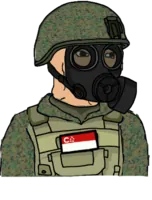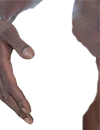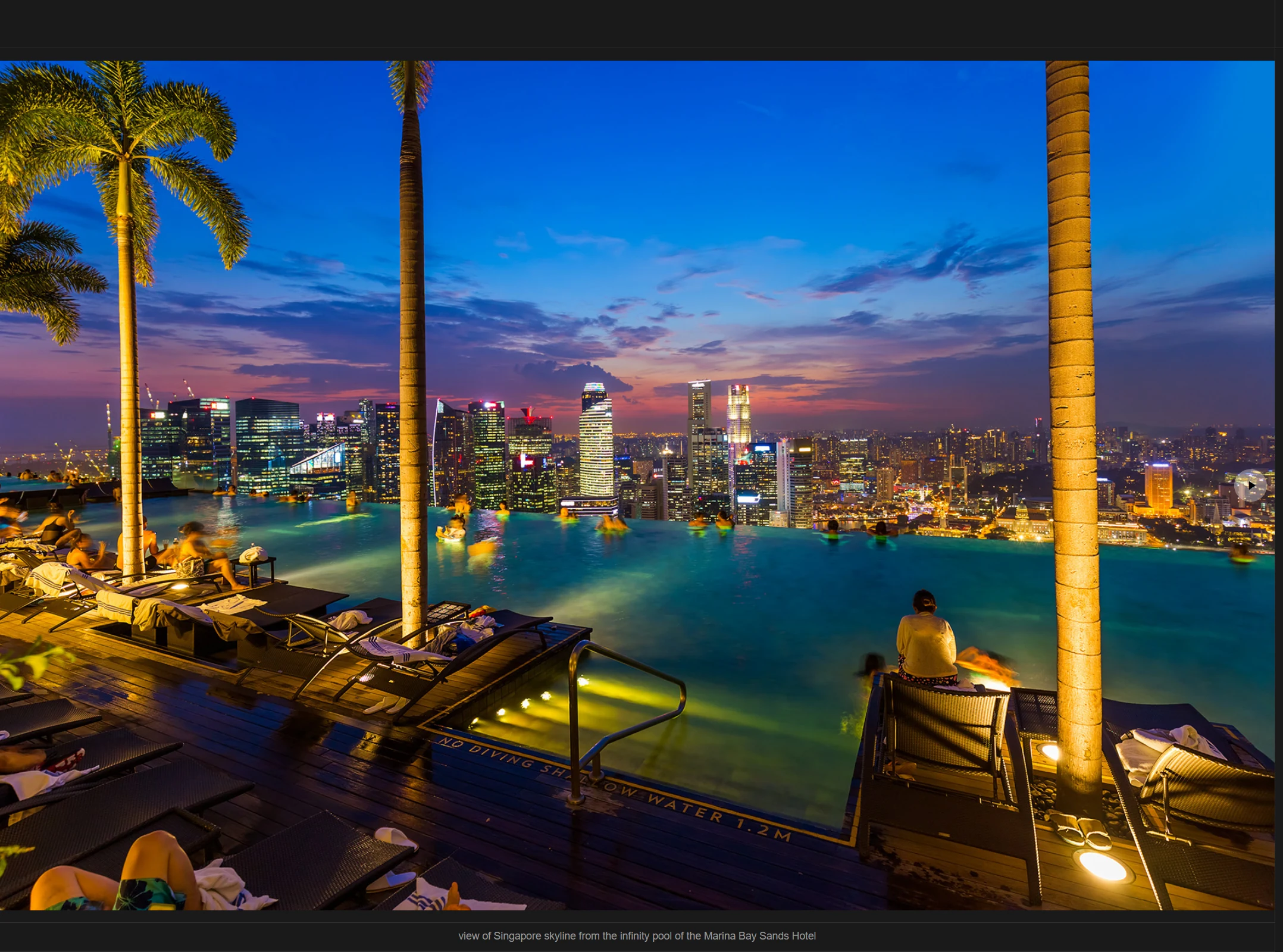- 5
- 7


KILLERS: Mimi Wong (left) claimed it was her husband who killed Mrs Watanabe. Sim Woh Kum pretended to be a workman when he and his wife went to the victim's home.
The case of Mimi Wong (1970)
The dance hostess was the first woman to get the death penalty in Singapore for murdering her Japanese lover's wife
It was the night of Christmas 1969. Japanese mechanical engineer Hiroshi Watanabe decided it was time for his wife Ayako to meet Mimi Wong Weng Siu, the dance hostess who had been his lover in Singapore for the last three years. Mrs Watanabe, 33, had flown into Singapore with their three young children only two days before, to live with her husband here.
That Christmas night, Mr Watanabe drove his family to Wong's house at Everitt Road.
It took some persuading from the Japanese to convince 31-year-old Wong to meet his wife. She was angry and abused him. But after he spoke to her alone for 30 minutes, she finally relented.
Along with Wong's servant and her daughter by a Hong Kong businessman, they all went out for dinner in his car. Wong also gave her lover's children sweets.
Six days later, on New Year's Eve, Wong even went to a party hosted by the Watanabes at their Jalan Seaview semi-detached house.
But behind the pretence, Wong was writhing in jealousy.
She was convinced that her affair with Mr Watanabe, who had been assigned to Singapore three years earlier to work on a reclamation project in the eastern part of the island, would fizzle out now that his wife was in town.
Her hatred was fuelled by Mrs Watanabe allegedly calling her a prostitute at the New Year's Eve party. On the evening of Jan 6, Wong returned to the Jalan Seaview home, with her estranged husband, 37-year-old Sim Woh Kum, a sweeper in financial difficulty. And they murdered Mrs Watanabe.
The killing was witnessed by her eldest daughter, nine-year-old schoolgirl Chieko.
She was the prosecution's star witness during the trial 10 months later.
'I saw blood on my mother's chest'
That night, Chieko said, her mother had tucked in the three siblings in a first-floor bedroom, which was joined to a large bathroom. Her father was working overtime at the reclamation site at the time.
As she lay awake on bed, Chieko heard voices, then footsteps on the ground floor.
Then she heard screams coming from the bathroom.
"They were screams of pain from my mother."
She went to the bathroom and found her mother sitting on the floor.
"The man was pulling my mother's left hand and Obasan was pulling her right hand." Obasan is Japanese for auntie - a name her father had suggested she call Wong.
"I saw blood on my mother's chest. I cried and Obasan covered my mouth with her hand. I stopped crying and she released me."
Her mother sustained two fatal stab wounds - one gashed the neck and the other penetrated her abdomen.
Chieko went back to the room to wake her six-year-old brother, but he continued to sleep.
Then she saw Wong and Sim run down the stairs.
"My mother stood in the bathroom. She staggered a few paces and fell. I thought she was dead."
Her siblings were soon awake.
"All three of us stood outside the bathroom and cried. We were still crying there when Father got back."
When Mr Watanabe returned to the house, he was greeted by the wails of his children. He ran up and saw them standing outside the bathroom. Inside, he saw his wife, who was wearing a red dress, lying in a pool of blood.
Mr Watanabe asked Chieko what happened.
"My father asked me who did it. I replied: 'Obasan and a man whom I did not know'."
Sim was a stranger to Chieko, but she later picked him out from an identification parade as the man she saw struggling with her mother.
Sim's confession
Sim said that Wong first spoke to him about the plan to murder Mrs Watanabe on Jan 2, and offered him money.
On the night of Jan 6, they took a taxi to the victim's home. Wong had given Sim a tin half-filled with potty-cleaning liquid. In her bag, she had a pair of gloves and a knife.
When Mrs Watanabe asked what she wanted, Wong told her that she had brought a workman to repair a broken potty basin.
She let them in.
"I threw the liquid into the eyes of the woman," said Sim. "Wong stabbed her with a knife. The victim shouted - probably in pain - and covered her face with both palms while on the ground."
To keep Mrs Watanabe quiet, Sim covered her mouth but she bit his finger. That was also when Chieko saw him.
"After stabbing her (Mrs Watanabe) to death, Wong ran away. I chased her to the mouth of the road. We got a taxi..."
The next morning, Sim was arrested. Blood was found on a pair of trousers he had. It was found to be Type A, the same as that of the murdered woman.
During the trial, he also revealed his difficult relationship with Wong, with whom he had two sons. A year after their marriage, he said Wong assaulted his mother.
"This led my mother to dub her as 'empress daughter-in-law'",he said.
Sim never dared start a quarrel because "Wong would attempt to strike me".
"When I saw her in an aggressive mood, taking up a knife or stick, I would run for safety."
The one occasion when he was hit with a breadknife left a scar.
Their youngest son was less than two years old when Wong left him in 1963, before becoming a bar waitress. He said she would strut with her boyfriends in front of him.
"I advised her to refrain from such an action. I was hoping she would return to me."
'He killed her'
Wong put the blame for the death of Mrs Watanabe on her "greedy" husband.
After spending the morning and evening drinking, she said she went to the victim's home "just to slap her". It was not only because of what Mrs Watanabe had said about her, but also to give the woman another reason to complain to her husband. Wong said she wanted Mr Watanabe to end the affair.
She brought Sim along as protection, even though she hated him, because Mr Watanabe had told her most Japanese knew judo. She was afraid that this was true of Mrs Watanabe.
At the doorway of the children's bedroom, she slapped Mrs Watanabe. They were fighting in the bathroom when she claimed Sim threw the liquid at them.
"I asked Sim to run away but he refused."
She decided to leave and tripped down the stairs. It was only when she was outside that Sim joined her.
"If I had not been drinking that day, this incident would never have arisen," she said, insisting there was no way she could have stabbed Mrs Watanabe.
"I am only a woman and have also not the strength to stab her especially when she was biting my left finger and grabbing and scratching my right hand."
Wong also denied being a member of an all-woman secret society known as the Red Butterfly Gang - an accusation which had been made by Sim.
Testifying for the defence, psychiatrist Dr Wong Yip Chong said Wong had seemed prepared to be the "subordinate woman" in Mr Watanabe's life.
He said she tried to be nice to Mrs Watanabe, even sending her presents through Mr Watanabe.\
But the wife "was not only downright ungrateful, but also insulting and humiliating to Wong", said the doctor.
This affected Wong, whom he said could have been suffering from a viral brain infection. She could have caught the Japanese encephalitis virus from Mr Watanabe, he added.
Worried husband
In court, Mr Watanabe described his lover as a "lady with a forceful temperament" and a "strong drinker who could hold her drinks".
While his wife disapproved of the affair, he said he could not end it suddenly.
"Wong had hinted to me on several occasions in angry tones that if I were to sever my ties with her, something drastic would befall me or any member of my family."
He admitted he was thinking of leaving her, and that she suspected this.
On the day of the murder, Mr Watanabe had dinner with Wong at their Everitt Road place at 7.30pm.
She asked him if he would be staying the night. He spurned her, saying he would be going home to his family.
He also said that after his wife's death, Wong, who had a flair for hysterics, saw him at the Criminal Investigation Department.
She knelt on the floor.
"She told me in English: 'I am sorry. Give me see your wife, can or not? That night I drunk. I love you true. You told me everything finished."
The verdict
After a trial lasting 26 days, Wong and Sim were convicted of murder and sentenced to death on Dec 7, 1970.
Wong became the first woman to receive the capital punishment from a Singapore court. Both showed no emotion.
After unsuccessful appeals - including one to President Benjamin Sheares - both went to the gallows at Changi Prison on Jul 27, 1973.
They were buried side by side.
Who was Mimi Wong?
Police found that she was the daughter of her father's second wife. She was just 11 months old when he died.
At 14, she was already working as a packer.
She was 17 when she met Sim Woh Kum at a picnic. In 1958, when she was 19, they married.
A year later she gave birth to a son. In 1962, another son came.
Money was tight, and she had to do odd jobs in restaurants. Her husband lost his job after he was caught gambling.
She left him and became a dance hostess.
In 1966, she met Mr Hiroshi Watanabe. She claimed she got pregnant and he refused to give her money for an abortion, saying he had none. After she went to Penang for an abortion, Mr Watanabe continued the relationship.
During their affair, she met a Hong Kong businessman and fell head over heels for him. He took her to Hong Kong. Even so, she still continued to send Mr Watanabe love letters. When she got pregnant, her Hong Kong lover kicked her out.
She returned to Singapore and gave birth to a daughter. Mr Watanabe continued to visit her.
She worked as a social escort for a time to make ends meet.
In the middle of 1969, she became Mr Watanabe's mistress. He gave her $200 a month, and rented a room at Alexandra Road for her. A few months later, they moved to Everitt Road. She even hired a servant.
- 6
- 10
Tulsi gains brief national attention by dunking on Kamala in primary
Pleased with this, Tulsi continues dunking on Democrats, becomes Bernie Bro
Bernie loses
Tulsi begins parroting based Greenwald takes to dunk more effectively
Those takes are a bit too based. Democrats respond meanly
Tulsi cancels her Democratsy and is now independent
Midterms, redwave halted everywhere except Florida
Civil War in Republican party, people now backing Florida Man instead of Orange Man you are here
Primary. Florida Man wins
Orange Man announces as pro-choice independent
Tulsi centrist running mate
Against all odds, NateSilver.png, and due to various scandals in main parties, Orange Man wins
Orange Man dies (fat old)
Tulsi succeeds
discuss
- 16
- 33
Pretty dumb to come at this from the mandatory conscription angle, you wouldn't find much sympathy from the locals by doing so. There's pretty much no escape unless your health is in the shitter and even our one and only Olympic Gold medallist had to serve so... 
She was the only woman soldier working in the guard room, surrounded by men who harassed and frightened her after she said she was transgender. She tried to ignore them as they opened up their shirts and pretended to r*pe each other, while beckoning her to join them.
And then one day, as Lune Loh stood under the searing Singaporean sun, one of those men took his rifle and tried to shove it between her legs.
She was a woman. She was not supposed to be here, because Singapore's compulsory, two-year military service is required only for 18-year-old men. But under Singapore law, she was still considered a man, because she had not undergone surgery that would render her sterile.
Across the world, scores of countries still require transgender people to submit to such surgeries before their genders are legally recognized, a practice international human rights bodies have condemned as torture. These policies have left untold numbers of transgender people with an agonizing choice between their fertility and their identity.
For those who opt against surgery, the policies' consequences can be severe, limiting their prospects for jobs, housing, marriage and safe passage through the world. Since their identification documents list their genders as the opposite of how they present in public, they can easily be outed, leading to everything from bureaucratic hassles to life-threatening confrontations.
For some, the fear of being outed is so intense that they withdraw from the world. Loh, however, has taken the opposite approach, becoming an unusually visible transgender rights activist in Singapore, a rigidly controlled city-state that only announced it would decriminalize s*x between men in August.
Now 25, Loh is still healing from the wounds of her military past. And she finds herself grappling with questions about her future, like whether any company will ever employ her, or whether she will ever be able to have a biological child.
And so, though speaking out carries risk, silence for Loh is not an option.
"People are not getting housing, people are not getting jobs ... that's basically what we're fighting for," she says. "We just want to help people survive another day, another month, another year."
At the heart of the debate over gender recognition laws is the importance of identity.
The legal documents that define our identity are crucial to navigating life and the world, from getting a bank loan to crossing a border. In much of the world, changing gender markers on identification documents remains impossible. Other countries allow such changes, but often with draconian prerequisites including sterilization, psychiatric interventions, and --- for any married person --- mandatory divorce.
"There's a lot of requirements in most of these laws imposed on trans people which are all violating the basic human rights --- the right to privacy, the right to bodily integrity, the right to non-discrimination, the right to identity," says Julia Ehrt, executive director of the International Lesbian, Gay, Bisexual, Trans and Intersex Association, or ILGA World.
Surgery makes some transgender people feel more comfortable in their bodies, but others consider it medically unnecessary, invasive and painful or prohibitively expensive. Some people simply cannot have it for medical reasons.
Gender-confirmation surgery can involve a variety of procedures that alter a person's sexual characteristics, some of which lead to permanent sterility. While the law in some countries explicitly spells out that sterilization must be an outcome for legal gender recognition, in most cases the ultimate intentions behind these policies are unclear and likely varied. But whether rendering transgender people sterile is the goal of these mandates, it's generally the result.
In the U.S., 13 states and territories have a surgical requirement to update gender markers on birth certificates, and four require it for updating driver's licenses, according to Olivia Hunt, policy director for the National Center for Transgender Equality. The states do not clarify what procedures they will accept.
Even after surgery, the process of obtaining a legal gender change can be convoluted and humiliating. In Australia, two states require two separate examinations of post-surgery genitalia by doctors, who must sign statutory declarations confirming "a surgical procedure involving the alteration of a person's reproductive organs." Any false statement by the doctor, the New South Wales state form warns, could result in two years' imprisonment.
"We don't even force s*x offenders to be sterilized in this country, but you're forcing transgender people just to get a birth certificate? Come on," says Kirsti Miller, a New South Wales woman who underwent gender-confirmation surgery in 2006, and was forced to divorce her childhood sweetheart. New South Wales removed the divorce mandate in 2018.
In Singapore, the surgery requirement has affected even children, says Coen Teo, executive director of TransBefrienders, a non-profit supporting transgender youth.
Singaporeans under 21 must get parental consent to undergo gender-confirmation surgery, a landmine for transgender children reluctant to tell their conservative families about their transition. But if they don't, they are required at many schools to use bathrooms and wear uniforms that match the gender marker on their national identity card, causing anguish.
"They don't feel themselves in school, so they can't concentrate in school, so a lot of them don't do well. And I'm speaking from experience," says Teo, a transgender man.
Most gender-confirmation procedures are not offered in Singapore, forcing several teens at TransBefrienders to travel overseas and spend possibly tens of thousands of dollars.
"They want to get back in school, they want to get back their life," Teo says. "It's a huge hurdle for them."
In a statement to The Associated Press, the Ministry of Home Affairs said the information on Singaporeans' national identity cards reflects a person's "s*x," which the government determines based on the person's "biological and physical attributes." To change that marker requires "proof of surgery, and the complete alteration of one's physical reproductive attributes," the ministry said.
"This allows the government to implement policies and laws based on s*x in a consistent manner," the ministry said.
Human rights watchdogs have spent years demanding an end to policies like these. In a 2013 report, the United Nations Special Rapporteur on Torture urged governments to outlaw forced or coerced sterilization in all circumstances. The following year, seven U.N. agencies, including the World Health Organization, said gender recognition policies requiring sterilization "run counter to respect for bodily integrity, self-determination and human dignity."
Many countries have been slow to respond. In 2019, Japan's Supreme Court upheld as constitutional the country's gender recognition law that requires surgical sterilization.
Some governments, however, have made changes. In 2012, Argentina became the first country to grant legal gender recognition based entirely on self-determination. In 2018, Sweden became the first country to financially compensate transgender people who were sterilized under its old policy.
Germany is considering similar compensation. Around 10,000 transgender Germans were sterilized under the country's former policy, according to advocacy group Bundesverband Trans(asterisk).
Cathrin Ramelow, a 58-year-old German transgender woman, is fighting for compensation and an apology from the government. In 2000, she underwent surgical sterilization, welcoming the chance to end her double life. But afterwards, she says, she agonized over what she had lost.
"You know there's something wrong with you and you can't have children anymore," she says. "I cried some days."
Years later, Loh would make the opposite choice. But she found that it, too, came with a steep cost.
Tucked against the wall of a spare room in Loh's apartment is the camouflage backpack she carried during her two years of enforced military service. One recent afternoon, she plunges a slender arm inside it and pulls out her old helmet, staring at it briefly before shoving it away.
They are artifacts of a time she likens to torture. She remains vanishingly thin from the eating disorder she developed during her service, an attempt to counter the masculinization of her body from the intense physical drills.
Loh is a poet with a wide grin, brainy and sensitive, eager to chat about philosophy, politics, art and music. But when she talks about her army days, her easy laugh turns nervous and her face goes dark.
She was raised as a boy by a protective mother and a conservative, stern father she grew to fear. Though he socialized Loh to be masculine, she knew early on that her body did not match who she was. Her first realization --- or "flash point" --- that something was off came one night at age 8, when she caught her distorted reflection in a window and suddenly imagined herself with long hair.
More flashpoints would follow until at 17, she read an article about transgender people coming out late in life. That was, she says, the moment her "egg cracked": How much longer will you wait, she asked herself, before you live the life you want?
She would wait one more year, until after her father had left the family. Her mother, Stella Wong, would embrace Buddhism, and ultimately Loh's identity.
"Everything is impermanent, whether you are male or female," says Wong, whose normally cheerful manner morphs into rage when strangers stare at her daughter. "In Buddhism, gender is nothing."
Yet by the time Loh began transitioning, she had been conscripted under Singapore's National Service requirement.
The Ministry of Defense's public position on transgender people --- reiterated in a statement to the AP --- is simply: "Those who are legally declared female will not be required to serve."
There are backdoor ways to sometimes get an exemption, but they are unofficial and often unknown, as with Loh. And she did not want to undergo sterilizing surgery because her conservative upbringing left her wanting her own biological children --- or at least the potential for them.
"Does the government not want trans people to have children of their own?" she asks.
And so, riddled with dread, she started her service, steeling herself as the silky black hair she had begun growing out was summarily shaved off.
The other soldiers made sexual comments and asked what color underwear she was wearing. One man repeatedly asked for s*x in messages that left her so frightened, he began haunting her nightmares.
She despised combat training, having to roll around in the jungle with the men. She cried afterwards in her mother's arms. Panic attacks set in. She became suicidal.
Poetry was a lifeline. In between exercises, she lay in her bunk, typing poems into her phone. After her shifts, she put on makeup and a wig and went to open mic nights around the city that drew members of the LGBTQ community.
One poem she wrote then, "Moonface," detailed her exhaustion over her warring identities, "that whiplash whenever you take off the wig."
"I just felt like the faces of the moon. Sometimes you're showing half your face," she says.
She survived her service and entered university, where she fully socially transitioned. But her legal status as male continued to cause problems, forcing her to live, uncomfortably, on the male corridor of her dormitory. She was arrested for participating in a protest for transgender rights without a permit outside the Ministry of Education building, and given a year's probation.
Meanwhile, Loh found herself fretting about her future in ways most early-20-somethings don't have to. She wanted to start hormone replacement therapy, but worried it would permanently affect her fertility. And she could not freeze her sperm for non-medical reasons because "social freezing" is not allowed in Singapore.
Loh researched fertility clinics overseas, but became discouraged by the cost and the complexities of accessing her gametes, or reproductive cells, from Singapore. She began to rage at the limitations placed upon her life.
"I have no avenue to fall back on," Loh says. "I have to go to another country to possibly pay more to preserve my gametes. Why do I have to go through all that? Why do I have to risk my own body?"
Loh had to weigh more than the risk to her fertility. She had to weigh the risk a mismatched ID card could pose to her life.
In 2019, Loh and her family travelled to neighboring Malaysia for a day of shopping. Loh handed the Malaysian immigration officer her passport, which lists her gender as male.
The officer stared at Loh, and when she spoke, her voice was steely. "You should go cut your hair," she snapped.
The words sent a chill through Loh. She knew that in Malaysia, simply being transgender is considered a crime. She had read stories about transgender people there being mobbed and killed.
She hurried across the border. Now, she makes sure to sweep her long hair back at checkpoints.
"I'm terrified of traveling now partially because of that," she says. "I still think about it to this day."
Given the prevalence of violence against transgender people, mismatched IDs can present a grave danger while traveling, says Ehrt of ILGA World.
"When you're in a position of vulnerability such as you are at a checkpoint, or you need to cross a border, then of course it's aggravated when your ID doesn't match," Ehrt says. "If a trans person of color has a nonmatching ID card and wants to cross a border, that is a catastrophe."
A 2015 survey of nearly 28,000 transgender people in the U.S. found that almost a third of those who presented a mismatched ID had endured negative experiences, including harassment and assault, according to the National Center for Transgender Equality, which conducted the study.
For a few, the fear of discrimination is so intense that they are reluctant to leave not only their country but even their house.
Jojo, a 32-year-old transgender woman, has spent years largely confined to her parents' Singapore home. She spoke on condition that her full name not be used to avoid harassment.
"The thought of being in situations where I need to present the identity card and having confrontations terrifies me," she said by e-mail.
She steps outside only occasionally for short walks, and survives on the support of her financially strapped parents. She has no current plans to undergo surgery, and thus no prospect of obtaining an identity card that matches how she looks. She hopes one day the surgery requirement will be replaced with something less invasive, such as requiring a person to live for two years in their preferred gender.
Loh doesn't see that happening any time soon.
"I feel like the earth will cook us alive faster than we can get legal gender recognition," Loh says. "It's an uphill battle and I'm already exhausted."
For those whose identities are denied by the state, the result can be financial ruin.
This is particularly true in Singapore, where government benefits are designed around heterosexual families, especially when it comes to finding a home. Eighty percent of Singaporeans live in government-subsidized housing. The catch: If you're under 35, you can only get that housing if you're married. And same-s*x marriage remains banned.
"The reality is that the gender marker in Singapore is something that gives you access to different things and different resources," says Loh. "Every single policy that benefits people is tied to getting a heterosexual arrangement."
At 25, Mick Yang wonders how much longer he will have to wait before he can afford to move out of his parents' home. As a transgender man who opted against sterilizing surgery, the state still considers him a woman. So he cannot get married and thus cannot access subsidized housing for at least another decade.
The policy also means his chances of having a biological child are slim, as only married women are allowed to use frozen eggs to conceive.
"I don't like the idea of not even having that option," says Yang. "As I get older and more of my peers move into that life stage, then I think it gets more aggravating and agonizing to feel that lack of freedom and rights."
Conversations with colleagues excited about their new subsidized apartments leave him feeling gutted.
"I've contributed just as much to this place and care as much and yet I cannot etch out a home for myself or any conceivable future family," he says.
Having a mismatched ID can also limit transgender people's employment prospects.
Although Teo of TransBefrienders passed the interview for an aviation training role, he was rejected after he produced his ID, which outed him as transgender. His would-be employers, he says, told him the conservative Ministry of Education might reject his application to be a trainer because his appearance clashes with his gender marker.
It all becomes a frustrating loop: Because finding work is difficult, transgender people tend to be less affluent, which means many can't afford unsubsidized housing, let alone the surgery for a legal gender change.
Among the many fears Loh has about her future, finding a job tops the list. "Will they reject me because I'm trans?" she wonders.
Loh's mother worries about how her daughter will navigate a future in which so many options have already been ripped away.
"But I have no choice," Wong says. "Because in Singapore, we abide by the rules. Me too."
Loh finds solace in the rare spots on the island that feel cocooned from the rules. One recent evening, that spot is a softly lit loft where poets have gathered for an open mic night.
Loh laughs and embraces her friends, sliding past a bar lined with more books than bottles of booze. The crowd is a mix of genders, races and sexual orientations.
Here, there is no judgement, no stares, no ID cards required. Loh revels in the freedom to be herself. "This is literally my space," she says.
She sifts through her phone, debating which poem to perform, ultimately selecting one about her hard-won identity as a woman.
Soon it's her turn at the microphone. The audience listens, rapt, snapping their fingers in support as she lays bare her pain and perseverance.
The applause washes over her. She smiles as she is seen, by her peers if not her government, for exactly who she is: A woman.
- 9
- 14


One staff said: "I’d characterise the manner in which this entire situation was handled as impersonal, unprofessional and hasty."
what does twitter employees in singapore even do? @RustShill don’t think these employees are codecels?
trans lives matter in the same way as the lives of twitter employees 

- 2
- 16
Keep the hole alive
This story was first published in July 2015 in an e-book titled Guilty As Charged: 25 Crimes That Have Shaken Singapore Since 1965. A collaboration between The Straits Times and the Singapore Police Force, the e-book appeared in The Straits Times Star E-books app. Read the other crime stories here. (Warning: Some content in these stories may be disturbing for some individuals.)
High-rolling hustler (2004)
"Unremarkable" family man, who led double life as the darling of offshore casinos, cheated banks of millions
Living in a Serangoon Road condominium with his wife and two teenage sons - Chia Teck Leng appeared to most as an unremarkable family man, with all the trappings of upper middle-class Singapore. But unbeknownst to his friends and family, Chia secretly led a double life as a high-rolling hustler, complete with flashy cars, luxury apartments and a girlfriend half his age.
He was the darling of offshore casinos - gambling operators would personally fly him in on private jets so he could have a flutter in their betting halls.
To feed and fund his gambling addiction, he swindled four foreign banks out of $117 million from 1999 to 2003, using his position as the financial manager of Asia Pacific Breweries (APB). The case at that time was Singapore's biggest involving commercial fraud.
In 2004, the then 44-year-old was sentenced to 42 years in jail by High Court Judge Tay Yong Kwang - the longest for a case of commercial fraud.
"Bankers knocking on his door were there to meet the man... to forge a business relationship, but the man they met was unfortunately in the business of forgery," said Judge Tay at the sentencing.
Chia had been a compulsive gambler since at least 1994, when he was a financial controller with Swire Pacific Offshore, a marine services company.
He had plunged deep into debt during 1995 to 1996 and owed several banks about $100,000 in the form of overdrafts and credit card dues. But fortune smiled on him the next year when he began visiting Star Cruise ships almost every fortnight, to try his luck at the gambling tables.
He won on several occasions and was offered a credit line of $75,000. In less than a year, his winnings grew to about $1 million.
However, the tides turned in August 1998. In a gambling spree that lasted a fortnight, he not only lost all his previous winnings, but racked up new debts as well.
By the time he joined APB in 1999, the debts had mounted sky-high, and he was a desperate man. He trained his sights on four foreign banks, one after the other - Skandinaviska Enskilda Banken (SEB), Sumitomo Mitsui Banking Corporation (SMBC), the Mizuho Corporate Bank and the Bayerische Hypo-und Vereinsbank Aktiengesellschaft (HVB).
Submitting forged documents, he was able to open accounts in APB's name, with himself as the sole signatory. With SEB he had a credit facility for $500,000 - which he intended to use for himself.
Meanwhile, APB had no idea of what its finance manager was doing behind its back. Chia remained in sole control of all these accounts by forging director board resolutions that authorised him to receive the credit and loan facilities provided, sign all transactions and operate the bank accounts on behalf of APB.
To forge the signatures of the various directors of APB, he obtained specimens from annual reports and internal documents. He practised the signatures till he was sure they would pass muster.
Chia's modus operandi was to draw money from SMBC, Mizuho and HVB, and transfer it to the SEB account. From there, the money was siphoned into his two personal accounts with DBS before it was remitted to casinos in Australia, Britain, Hong Kong, Malaysia and the Philippines.
He rolled over funds provided by the banks, making timely deposits to each account whenever repayments were due, thus creating the impression of a credit-worthy customer.
During a crunch situation in November 1999, he even withdrew $53 million from an APB account with OCBC. He managed to replace the entire amount by October 2002, escaping detection. As the amount of illegal money available increased, so did the stakes for which Chia gambled.
In 2002, he met his girlfriend, Chinese national Li Jin, 22, on one of his gambling trips onboard a cruise ship. Li was a croupier in the VVIP (Very Very Important Person) room.
He won $1 million from her and, from then on, she became his "good luck charm". To make sure his luck continued rolling in, he spared no expense. Chia purchased a $530,000 apartment in Grange Road for her and bought her branded goods and jewellery.
He also bought a $10,000 forged passport so Li could enter Singapore easily. She used it twice - in 2002 and 2003 - and was jailed six months for the offence.
But as the adage goes, the casino always wins and the Commercial Affairs Department got wind of Chia's activities. He was arrested on Sept 2, 2003. Before his four-year run ended, he had withdrawn $117.1 million. Of this, only $34.8 million was recovered. The authorities estimated that he lost $62 million feeding his gambling habit.
While he was in jail, Chia wrote a 13-page paper as a form of penance. Called "Taming the Casino Dragon", he shared his experience as an insider to the world of high rollers.
Self-deprecating at times, and hoping others would not make the same mistakes he did, he wrote that "like an inexperienced teenager succumbing to the lure of a newly discovered vice, I was soon hooked".
CHIA'S DOUBLE LIFE
Accountancy graduate Chia Teck Leng began his career at accounting firm Arthur Andersen before taking on a host of high-flying positions, including assistant vice-president at UOB, before becoming finance manager at Asia Pacific Breweries on Jan 20, 1999, with an annual salary of between $200,000 and $300,000.
To colleagues, his wife and two teenage children, he was a hard-working executive and an unassuming family man. But behind that veneer, was a high-rolling casino gambler with a mistress and a "hedonistic" lifestyle.
He had been gambling since 1994. Since July 2000, he had been flying in private chartered jets to Melbourne where he would gamble at the Crown Casino. He was given VIP treatment, staying in its most expensive room, complete with butler service. A night there cost A$25,000.
He was also a regular at London Ritz's Club, where he could gamble even higher stakes.
From $200 bets during his Star Cruise days, he went up to single bets of A$20,000 and 25,000 in British ones. He even played for A$400,000 a hand at the Crown Casino.
He met his mistress, Chinese national Li Jin, in April 2002 at the casino on board a cruise ship. She was then a croupier.
He won $1 million from her that night. From then on, he would ask to gamble against her - his "good luck" charm.
Such were the losses suffered that she was eventually given a day off whenever he came on board. The Nanjing University graduate later left her job to be with Chia in Singapore.
He got her a forged passport for $10,000, under the name Chu Chiao-Ling, to enter and leave the country.
He spent lavishly. He bought a $150,000 Mercedes-Benz, a $530,000 apartment in Grange Road, and gave gifts totalling $300,000 to various people, including his girlfriend.
Bayerische Hypo-und Vereinsbank (HVB), Skandinaviska Enskilda Banken (SEB), Sumitomo Mitsui Banking Corporation and Fuji Bank, now known as the Mizuho Bank, sued Asia Pacific Breweries seeking repayment for the fraud committed by its employee Chia Teck Leng.
First Mizuho withdrew its suit, then Sumitomo's was dismissed. This was followed by HVB and SEB's cases also being dismissed.
Justice Belinda Ang, in her judgment against HVB and SEB, said that the banks had made themselves "easy prey" by ignoring their own banking procedures and failing to notice discrepancies or irregularities in documents that were "staring bank officers in the face".
The banks were so eager to do business with APB that they willingly gave out loans of millions of dollars without doing due diligence to verify that Chia was authorised to act for the company, she said.
- 83
- 73
I'm not a particularly culturally 'in-tuned' Malayalee, but the more I volunteer in ethnic Indian spaces in Singapore, the more I feel like non-Tamils are there just to be token minority-minorities.
— Arun (@lordarunm) October 18, 2022
Lmfao idk why twitter is still recommending tweets about singapore to me
@X (formerly chiobu)
@Sasanka_of_Gauda Tamils are the darker Indians right?
- 5
- 5
- 22
- 107
Usually I would think that this is heavy-handed but looking at the  slippery slope I don't know anymore...
slippery slope I don't know anymore... 
Fashion magazine Vogue Singapore has been issued a stern warning and its distribution permit duration halved for featuring nudity and promoting "non-traditional families", the Ministry of Communications and Information (MCI) said on Thursday (Oct 13).
In response to TODAY's queries, MCI said that the magazine had breached Singapore's content guidelines on four occasions within the past two years.
The magazine's existing one-year permit was shortened to six months, it added.
In Singapore, magazines are subject to the Newspaper and Printing Presses Act and must hold a permit before publishers are allowed to sell or distribute them.
As part of its permit conditions, Vogue Singapore has to comply with content guidelines, which "includes not undermining prevailing social norms", MCI said.
Guidelines set out on the Infocomm Media Development Authority's website state that for general interest lifestyle magazines, depictions of pubic hair, genitalia, buttocks and nipples are not permitted.
Semi-nude models with breasts or genitals covered by "hands, materials or objects" must also not be featured.
Magazines are not allowed to promote sexually permissive lifestyles or "alternative lifestyles", defined as an "unconventional manner of living atypical of the concept of the traditional family, for example, homosexuality, bisexuality and trans-sexuality".
MCI said that it revoked Vogue Singapore's permit as a matter of process.
"Vogue Singapore has re-applied and MCI has issued Vogue Singapore a six-month permit," it added.
Vogue Singapore was launched here in September 2020 with a website and monthly print publication. It is helmed by editor-in-chief Norman Tan.
TODAY has asked MCI for details of Vogue Singapore’s offending photos and articles, and has sought comment from the magazine’s publisher Media Publishares.
- 4
- 11
All COVID-19 vaccination-differentiated measures will be lifted from Oct 10, with restrictions no longer in place for dining in, nightlife establishments and events with more than 500 participants.
"We have learned to live with the COVID-19 virus, having weathered several infection waves and progressively lifted safe management measures," said the Ministry of Health (MOH) in a news release on Friday (Oct 7).
"As we resume normalcy in our daily activities, we will lift the vaccination-differentiated safe management measures fully from Oct 10, 2022."
This means there will be no vaccination-differentiated restrictions for:
Events with more than 500 participants at any one time
Nightlife establishments where dancing among patrons is one of the intended activities
Dining in at food and beverage establishments, including hawker centres.
"(The measures have) served us well in our journey to safe reopening," said MOH.
Singapore has significantly eased COVID-19 measures, with mask-wearing not required except on public transport, as well as in healthcare and residential care settings.
Group size limits and safe-distancing measures have also been lifted. SafeEntry and TraceTogether requirements were also removed for most settings.
All employees are allowed to return to the workplace, and the Disease Outbreak Response System Condition (DORSCON) level was lowered from Orange to Yellow after more than two years.
The DORSCON framework, which gives an indication of the current disease situation, was raised to Orange on Feb 7, 2020, at the start of the pandemic.
The ministry added that the measures have helped to protect those who are not fully vaccinated by reducing their exposure to settings with a higher risk of transmission, and in turn keeping the healthcare system from being overwhelmed when population-wide vaccination and infection rates were not yet sufficiently high.
However, even as the measures are lifted, people who are not fully vaccinated continue to face a higher risk of severe disease, said the Health Ministry.
"We urge such persons to come forward to be vaccinated, or continue to take their own precautions and minimise social interactions to protect themselves."
MOH also reminded members of the public to continue to remain vigilant and be ready to respond to any dangerous new variants, even as most safe management measures are eased.
It added that should the situation worsen, necessary measures may be put in place at "short notice" to protect the public, safeguard healthcare workers and conserve hospital capacity.
This may include "standing up" an appropriate level of vaccination-differentiated measures, as was necessary during the height of the pandemic.
MOH noted that as of Thursday, average daily infections in the community over a seven-day period rose from around 2,600 a week ago to 4,400.
Hospitalised cases have also increased from 247 a week ago to 342, and the number of Intensive Care Unit cases increased from nine to 13 in the same period.
"This is likely due to increased social activities, safe management measures being stepped down, and also the BA.2.75 and BA.2.10 Omicron subvariants, which have been detected around the world, now circulating in Singapore," said MOH, adding that the rise in daily cases was "not unexpected".
"What is important is to protect our healthcare capacity, and ensure that infections do not translate into large numbers of severely ill patients," said the ministry.
"We need to each keep our COVID-19 vaccination up-to-date as vaccination has become our primary defence against COVID-19."
- 11
- 25
- 6
- 18
Singapore is already starting the slow boil that will lead to digital currency that only works if you have a smartphone and the app, and expires if you don’t use it, that all those conspiracy theorists keep talking about. Last year, they issued digital handouts to the public that could only be used with their app. This year, they did it again with digital handouts to the million men who were conscripted in the last 50 years.
 hopefully this leads to gibs every month from the govt
hopefully this leads to gibs every month from the govt
You will embrace degeneracy: Male s*x (by extension, being gay) was banned by law in Singapore even before the country was founded in 1965. Though it has never been enforced and activists have been pushing for legalisation of cute twinkry for years. 2022’s Pink Dot pro-cute twinkry event during Pride Month has been the biggest it has ever been so far.
Singapore caved and ended the ban on gay s*x in Aug 2022.
Predictably, the degenerates got their inch and are now want a mile. They are now wanting legalisation of LGBT marriage.
Grooming children in school on gay s*x and LGBT topics is currently still a conspiracy theory that “won’t happen” in Singapore but America has spoilt the ending for how this story will go.
homophobia 
- 3
- 18
Lee Kuan Yew reflecting on his visit to China in the 1970s and the differences between mainland Chinese and Singaporeans.
— Rob Henderson (@robkhenderson) October 2, 2022
"I made a point of being Singaporean and different...In fact, we had never felt more unChinese than on that first visit." pic.twitter.com/SzrNXxheHN

- 3
- 11

https://old.reddit.com/r/worldnews/comments/xsun7h/singapore_says_russias_annexation_of_4_ukrainian/
https://old.reddit.com/r/ukraine/comments/xsu6b9/singapore_says_russias_annexation_of_4_ukrainian/
Singapore says Russia's annexation of 4 Ukrainian regions violates international law
Singapore said on Saturday (Oct 1) that Russia's decision to formally annex four Ukrainian regions violates international law and the UN Charter. “The decision by the Russian Federation to formally annex the occupied Ukrainian regions of Donetsk, Luhansk, Zaporizhzhia and Kherson violates international law and the UN Charter," said Singapore's Ministry of Foreign Affairs (MFA) on Saturday. Ukrainian President Volodymr Zelenskyy said he is only ready for peace talks if and when Russia has a new president. ”The proclamation of Russian rule over 15 per cent of Ukraine - the biggest annexation in Europe since World War II - came after referendums that were denounced by Kyiv and Western governments as illegal and coercive. He signalled that he was ready to continue what he called a battle for a "greater historical Russia", slammed the West as out to destroy Russia and accused Washington and its allies of blowing up the Nord Stream gas pipelines. Russian President Vladimir Putin proclaimed the annexation of Donetsk, Luhansk, Zaporizhzhia and Kherson in a grand ceremony in Moscow on Friday. During his address to Russia's political elite, Putin said that the move, which has been condemned by the West, is irreversible and urged Ukraine to negotiate a surrender. In response, the United States on Friday imposed sweeping sanctions on Russia, targeting hundreds of people and companies, including those in Russia's military-industrial complex and lawmakers. Therefore, we are ready for a dialogue with Russia, but with another president of Russia," Zelenskyy said. We know it's a hassle to switch browsers but we want your experience with CNA to be fast, secure and the best it can possibly be. He added, however, that Kyiv remains committed to the idea of co-existence with Russia "on equal, honest, dignified and fair conditions". To continue, upgrade to a supported browser or, for the finest experience, download the mobile app. NATO's Secretary General Jens Stoltenberg said that its allies "do not and will not recognise any of this territory as part of Russia". "We call on all states to reject Russia's blatant attempts at territorial conquest These lands are Ukraine," he added.
- 4
- 15
Dozens of ships waiting to enter Singapore have been seized over the last year by the Indonesian navy for illegally anchoring in its waters, with most being released after ship owners made unofficial payments
Most of the captains were freed after a few weeks once ship owners made unofficial payments to navy intermediaries of between $300,000 and $400,000, the people said.
I'm surprised they've been getting away with doing this to foreign companies.
- 10
- 17
- 33
- 47
https://en.wikipedia.org/wiki/Michael_P._Fay#Theft_and_vandalism_in_Singapore
This handsome neighbor vandalized 50 cars and trains. The US media pressured Singapore but instead received thousands of letters supporting flogging.
the Singapore government via Ong Teng Cheong, then the country's President, announced that the number of cane strokes would be reduced from six to four out of consideration for President Clinton










Then when he returned to America he did more crime and beat up his dad.
- 8
- 6
Was always told that place was sketchy so me and a buddy decide to go and every joint had big angry dogs barking at us.
Was kinda drunk so I might be exaggerating, also my buddy is a brotha.
Now that in thinking about it there might have been only one place with a dog, but all the shop owners seemed pretty unwelcoming.
- 9
- 45
Old-ish cartoon from our friends over at /r/polandball.
https://old.reddit.com/r/polandball/comments/3p07zn/singaporemalaysia_relationship/














 Anarcho-Syndicalist-Trotskyist-Stalinist Cuban Revolutionary
Anarcho-Syndicalist-Trotskyist-Stalinist Cuban Revolutionary 
 Dubbed torture, Singapore's ID policies leave transgender people sterile
Dubbed torture, Singapore's ID policies leave transgender people sterile 












































](/images/16658600994002054.webp)
](/images/16658602152340643.webp)
](/images/16658602625325735.webp)

](/images/16658601848743806.webp)



 mistreated in singapore
mistreated in singapore 






 Hypermuscular Hindu Hridaysamrat
Hypermuscular Hindu Hridaysamrat  NDP X (formerly chiobu) identified as China national, Singaporeans furious : singapore
NDP X (formerly chiobu) identified as China national, Singaporeans furious : singapore


















](/images/16632652211893444.webp)